International Community Development Profile: Robina Mbata Family
In this series, families in the Reaching Children’s Potential (RCP) Demonstration Program in Tanzania explain how their participation improves their lives. Global Volunteers’ RCP Program engages short-term volunteers to help parents deliver essential services improving health, eradicating hunger, and enhancing cognition – with the goal of eliminating child stunting in the Ukwega Ward and throughout Tanzania. Through RCP, families obtain the nutrition, health care, knowledge, technology, and encouragement needed to combat stunting, and to ensure their children can realize their full potential. The RCP Program is a child-focused, parent-driven, family-centered, and community-led comprehensive effort. It begins with pregnancy, and continues through the 18th birthday, with a focus on the first 1,000 days of life. Read Robina Mbata’s interview about the RCP Program here.
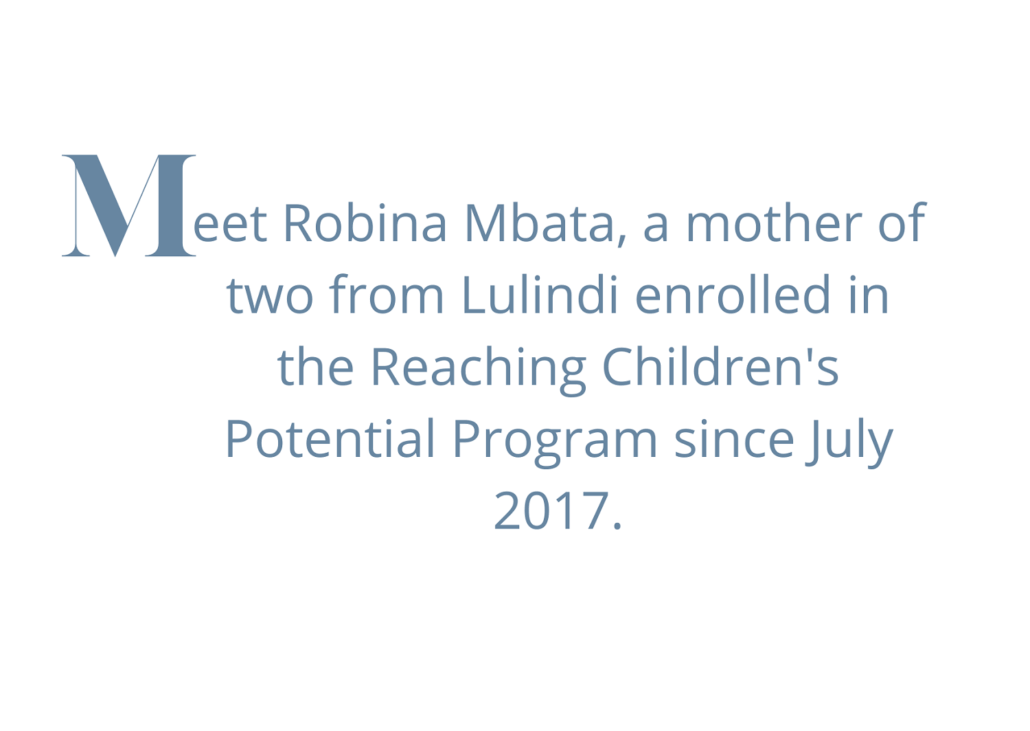
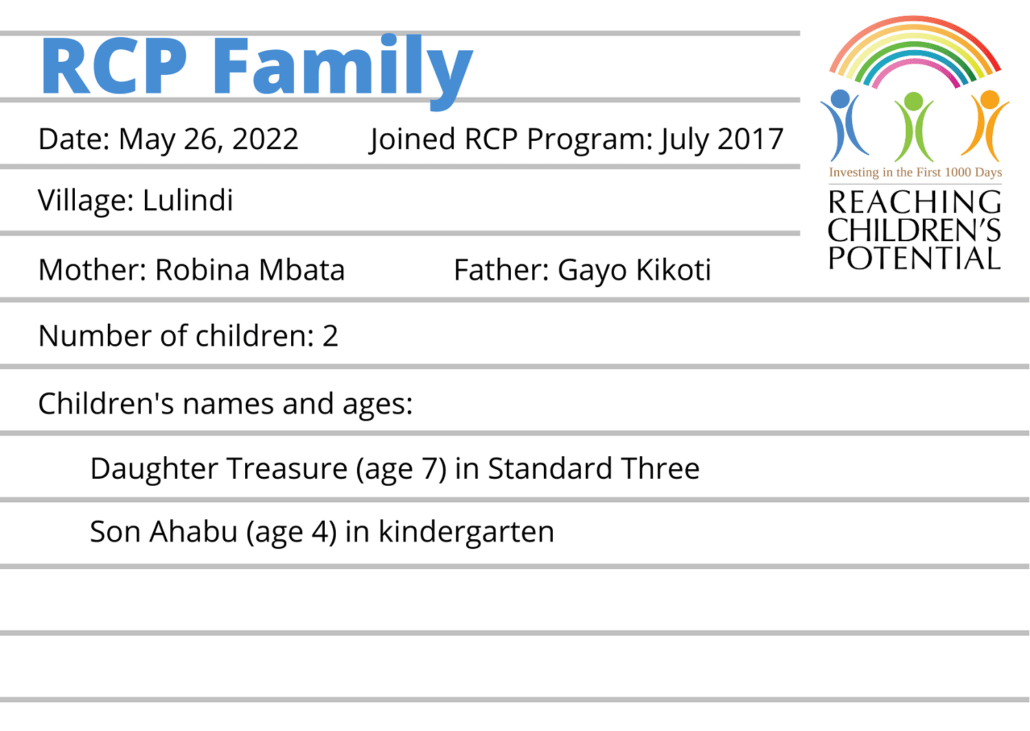
Robina, can you tell us about your family, where you are from, and what you do for a living?
My husband and I are originally from Ipalamwa, but after we got married, we moved to Lulindi. I have two children, both sons – Treasure, who is seven years old and in Standard Three, and Ahabu, who is four years My husband and I are originally from Ipalamwa, but after we got married, we moved to Lulindi. I have two children: my daughter Treasure, who is seven years old and in Standard Three, and my son Ahabu, who is four years old and in kindergarten. My education level is secondary school. We farm for a living, mostly beans and corn, but also cassava, potatoes, vegetables, tomatoes, yams, avocados, bananas, and pineapples. I also do tailoring.
What are the personal changes you’ve made in your life since joining RCP that have resulted in better health for you and your children? What are you doing differently now?
Before the program, we were just living roughly because we were not aware of many things like hygiene and what our children need in their environment to grow healthily. In fact, we were behind on everything. But now, through the program, we have gone through a lot of workshops which have been very helpful to our daily life. The way we raise our children now is very different from how we used to and our lives have changed significantly. We have been educated in many things, which have been helping us to stay healthy all the time compared to before. I’m happy that I came to know the importance of washing hands regularly and the use of the hand-washing station because my family and I are now very healthy and it is very rare to have someone sick in the house.
Also, the program has helped us think bigger. For example, after we were given a workshop about EarthBoxes, I went beyond that to find my own empty containers and plant some vegetables and flowers using the resources I have. So the workshops give me knowledge which I can also use to create something different.
I also love the Parents’ Club because I learn a lot of things to help us with our families in our daily lives. I love the sports activities that are conducted within the club because they make me active and help me associate with other people. All in all, I love everything in the program.
When you learned about hand-washing stations, what did you decide to do at home? How has the hand-washing station helped your family?
I use the hand-washing station to wash my hands after using the bathroom, before and after cooking, and any time I feel like my hands are dirty. In the beginning, it was hard because we would forget to wash our hands because we were not used to doing it, but now it has become a common practice and everyone enjoys doing it. Since we started using the hand-washing station, we have not been experiencing diseases like stomach fever and diarrhea as we were before. My children love to use the hand-washing station. When they were smaller, they asked for help to use it because they weren’t strong enough to tilt the jug of water, but now Treasure can do that on her own. Sometimes I still help Ahabu with that. Washing our hands with soap and clean water helps us to keep our hands clean and prevents us from getting diseases. Handwashing has made my family and me healthy.
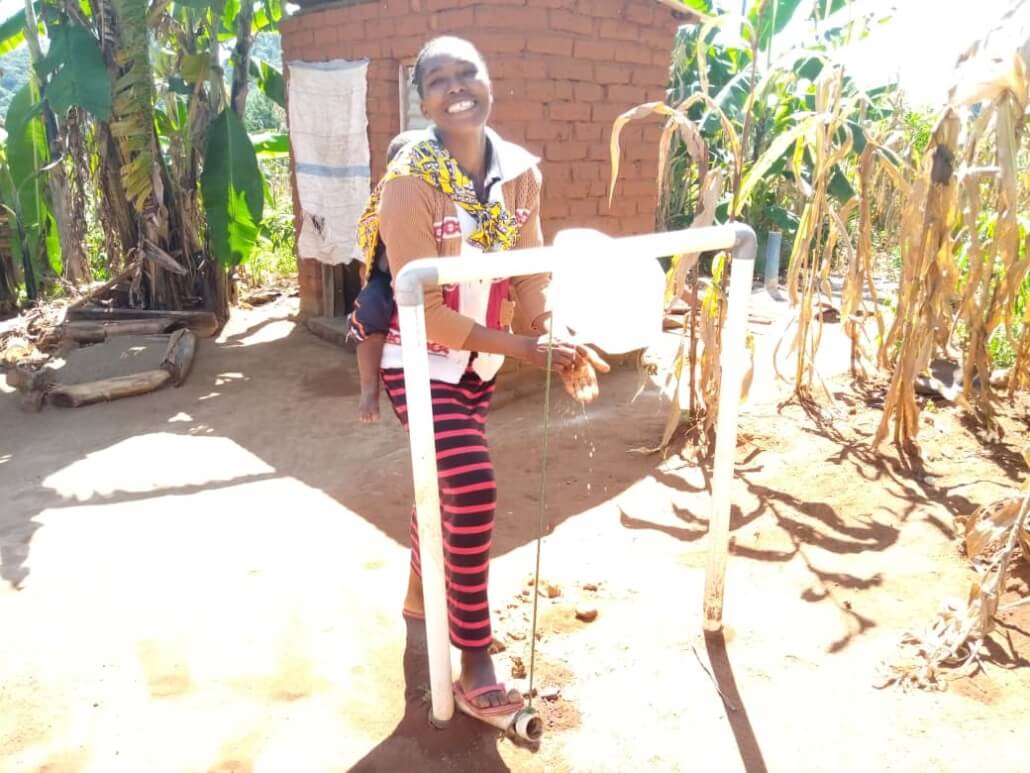
“All in all, I love everything in the program.”
– Robina Mbata, RCP mom
Have the Rise Against Hunger meals and fortified porridge been important for you and your children’s nutrition? What other foods does your family eat?
The meals provided at school – the Rise Against Hunger meals and then the fortified porridge – have greatly impacted my children because the food helps them to settle in school. It reduces the roaming of students in the street searching for something to eat during school hours. Also, the provision of meals in school helps to increase attendance. They like to attend school since they know that meals are being provided. It helps the teacher to teach the students without any disturbance since the students’ stomachs are full and it is easy for the students to be attentive in class. It’s difficult for a student with an empty stomach to be attentive.
I also received the Rise Against Hunger meals at home when Ahabu was one year seven months old until he turned two. Truly, the food was very nice, delicious, and healthy. Ahabu liked the food so much and it was among the foods that he would eat very well with a happy face. When he was eating the Rise Against Hunger meals, his weight was increasing rapidly and he was very active. Even now, he still looks healthy because of the foundation he had since the beginning.
Other foods that we eat are sweet potatoes, ugali, beans, rice (not very frequently), cassava, vegetables, and meat when it is available. Ahabu loves beans the most, so I try my best to make sure he gets them every day. We also eat fruits like avocados, bananas, and pineapple when they are available.
I make porridge by mixing different types of ingredients such as maize, ground nuts, and soybeans. I take them to the milling station to be made into flour. To cook it, I put water in a pot and once it becomes hot, I add the flour. I cook it and stir it for twenty minutes. Then I add sugar and sometimes milk. Then it’s ready to be eaten.
How have the EarthBoxes helped you supplement your family’s nutrition? How important do you think vegetables are for your family’s health?
I have grown green peppers, tomatoes, and cucumbers in my EarthBox. In the beginning, the first crop of green peppers was not growing very well but I informed my caregiver and they provided me with adequate help. Then the box was doing well and produced a harvest. I water the box twice a day through the watering tube. Green peppers have been helping me a lot not only health-wise but also by adding flavor to the foods that we cook. I would be grateful if I could get more EarthBoxes with vegetables so I wouldn’t have to walk far to get vegetables. Vegetables are very important to my family’s health because they give the body energy and some of the vegetables have minerals like Vitamin C, which helps in body building.
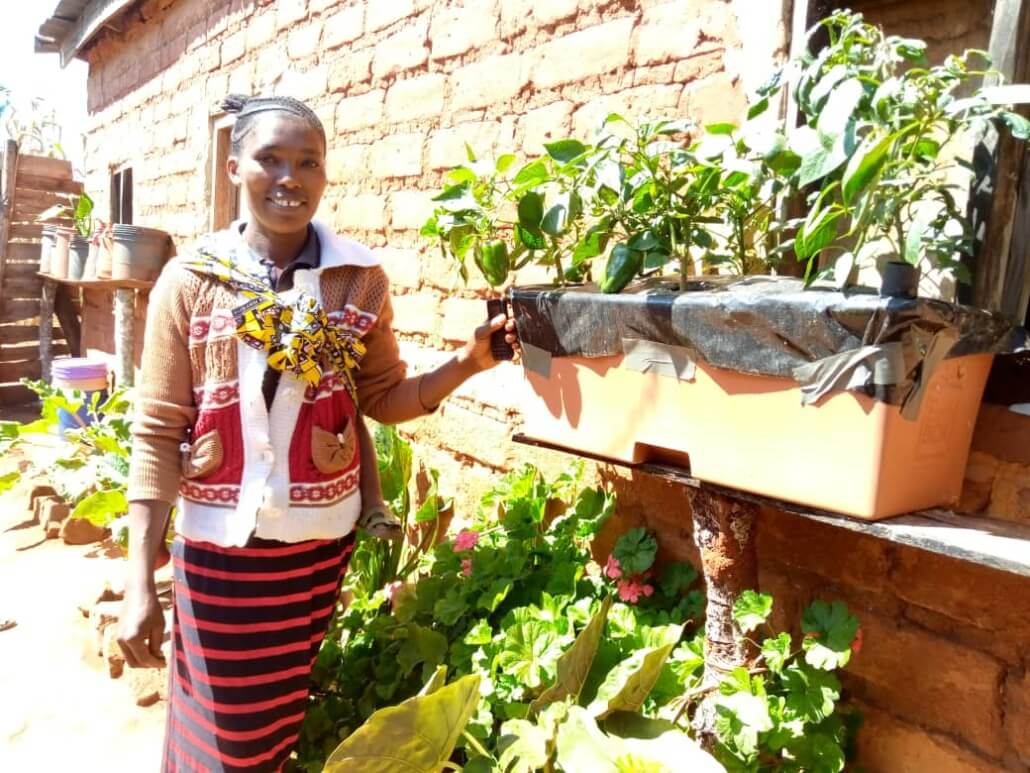
What have been your favorite parts of workshops and home visits?
I love workshops because we get new knowledge and ideas to help us in our daily life. I also love home visits because we can get a lot of answers to questions that we might have privately and I also feel loved when I’m visited.
If you have been using the clinic services in Ipalamwa, how are they different from medical services available before the clinic opened?
The services are great and professional at the Ipalamwa General Clinic. Specifically, in the family planning services, they are really professional because they first advise you or give you education on the advantages and disadvantages of the family planning methods. They also provide services or advice according to what you express that you need or want. In other local dispensaries, we couldn’t get this kind of service. Actually, before the Ipalamwa General Clinic opened, I was even afraid of using family planning methods because there were poor services. But now with the Ipalamwa General Clinic, I’m convinced to use one of the family planning methods.
“I love workshops because we get new knowledge and ideas to help us in our daily life. I also love home visits because we can get a lot of answers to questions that we might have privately and I also feel loved when I’m visited.”
– Robina Mbata, RCP mom
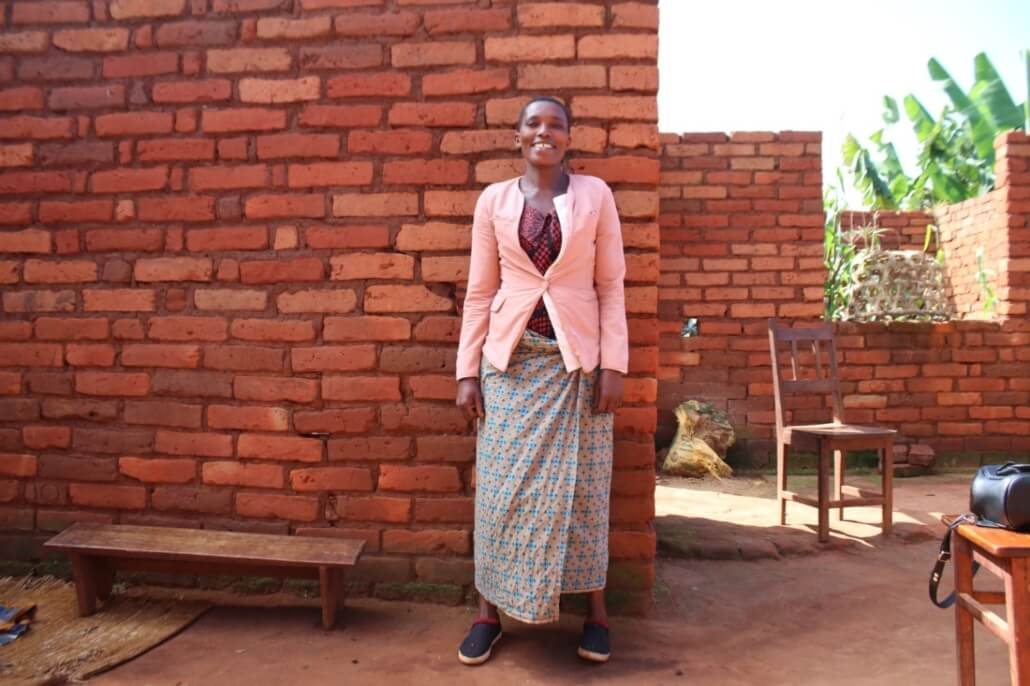
What can you tell us about your children, Robina?
My children love sports. Treasure also loves to write more than any other thing. I pray that she continues this way because even her performance at school is great. I hope that she will become a teacher when she grows up because she loves to teach others. I pray that Ahabu will become a doctor. I’m putting all of my efforts now into building their bright futures. I always follow up with them closely so that I can discover more ways to help them reach their dreams. Through all of the workshops that we have been given on parenting, the program has also helped me to help my children have better understanding and be active.
How are your children doing in school?
My children are doing very well. Treasure is doing fine at school since she stays with her aunt who is a primary teacher. She insists that she study hard so that she can have a bright future. She is always among the top ten students in school examinations. Ahabu is also doing fine. He is in kindergarten. He knows how to read and write very well. He knows how to sing the alphabet song and count numbers.
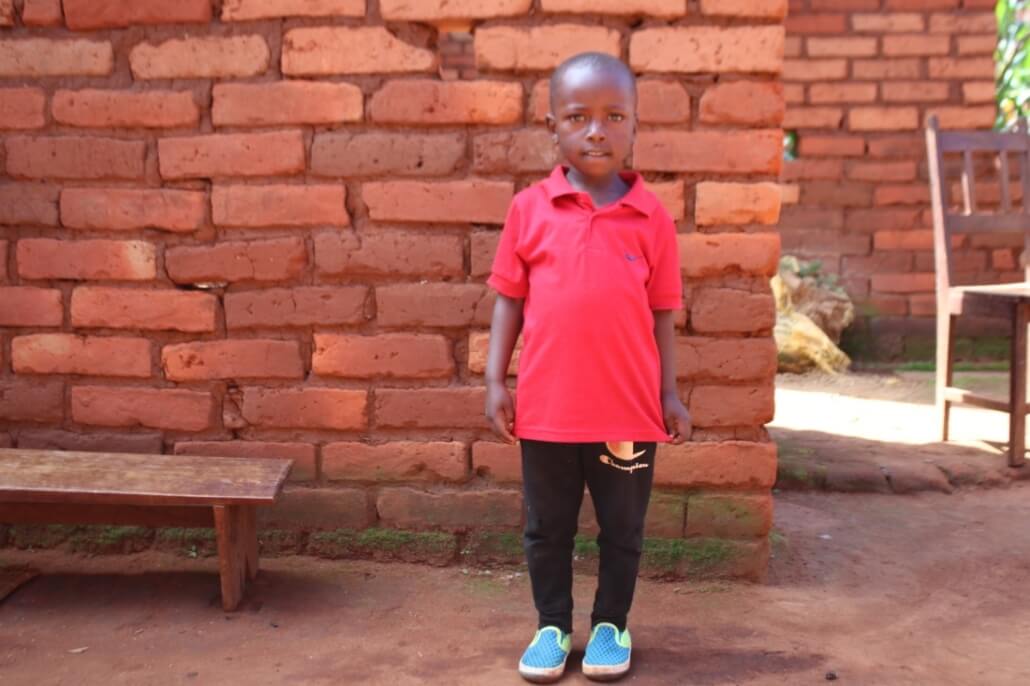
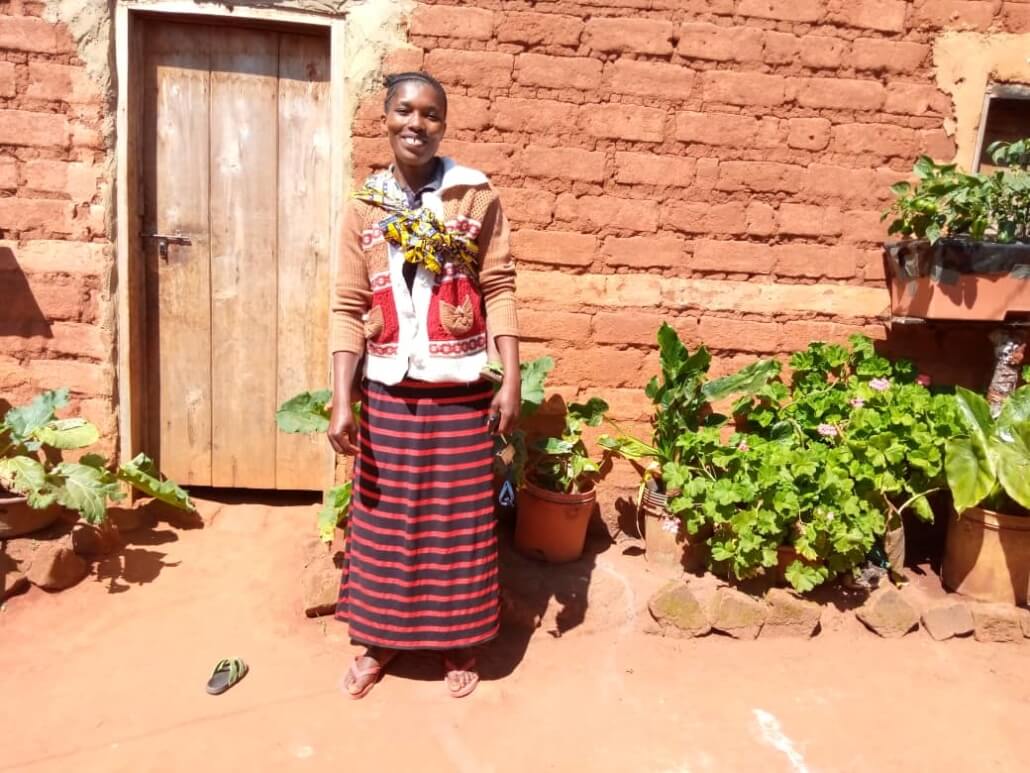
How has your family been doing in the last year? What aspects of the RCP Program have helped you in the last year?
My family has been doing great in the last year. We haven’t had any health challenges. Workshops have helped my family and me very much due to the fact that I have been transferring knowledge from the workshops to my family. The education on how to eat nutritious food has helped me very much because before I did not know what foods were most nutritious.
What I have learned in the last year is to cultivate vegetables in an open field and in containers and buckets. I have adopted this from what I learned about EarthBoxes. I have used the education on cultivating vegetables, which has helped my family to be healthy. It also saves time due to the fact that I have cultivated vegetables within my home surroundings where I can harvest the vegetables very quickly. Also, it saves money. Instead of spending money on purchasing vegetables, I can spend it on other necessary things.
What are your family’s biggest challenges? How do you try to address them?
Economic challenges are the main ones, but my husband and I always work together to figure out what to do to make sure that we provide for our children with everything necessary.
What are you most proud of in your family? What do you hope for in the future?
I’m proud of my family and I feel very happy when I see them because they are my fruits. Actually, I am a proud mama and wife. In the near future, we are planning to build another house since the one that we have now is very small and we need a bigger one. I hope my children will study hard until a higher level so that they can reach their dreams in the future.
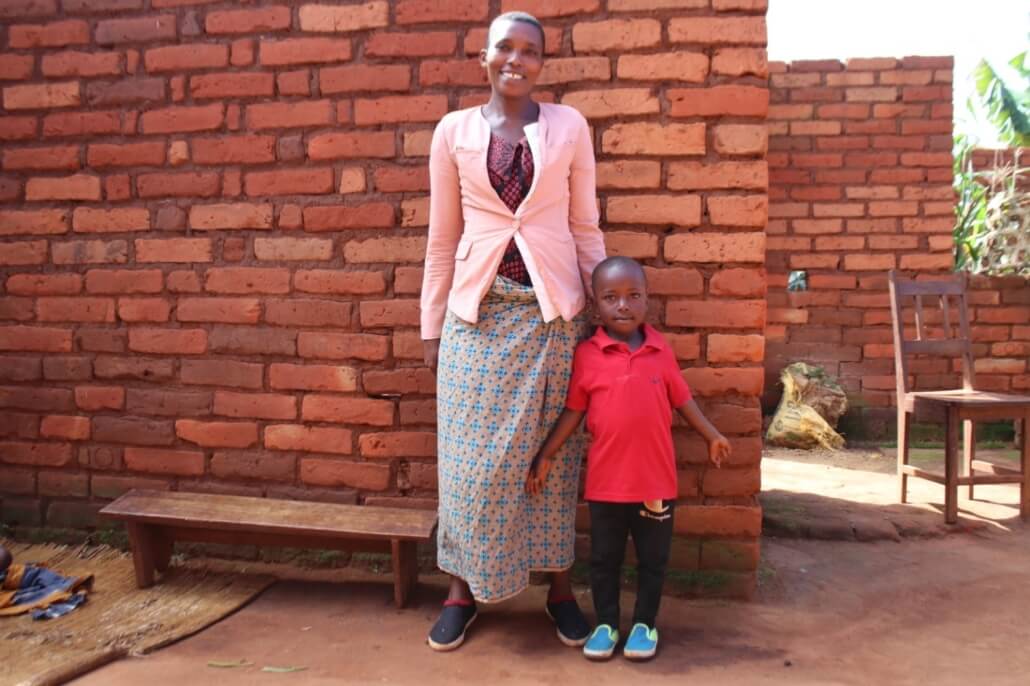

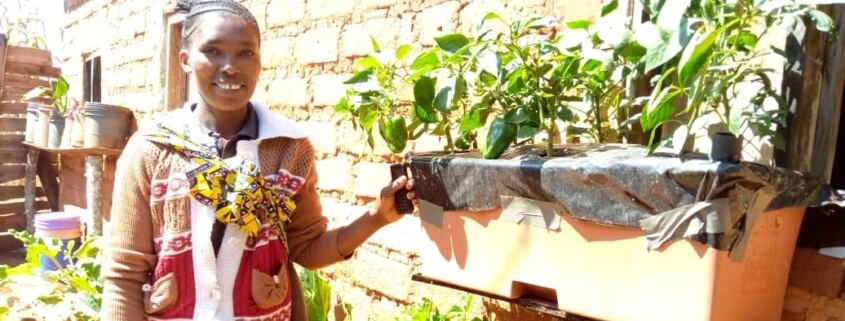


Leave a Reply
Want to join the discussion?Feel free to contribute!